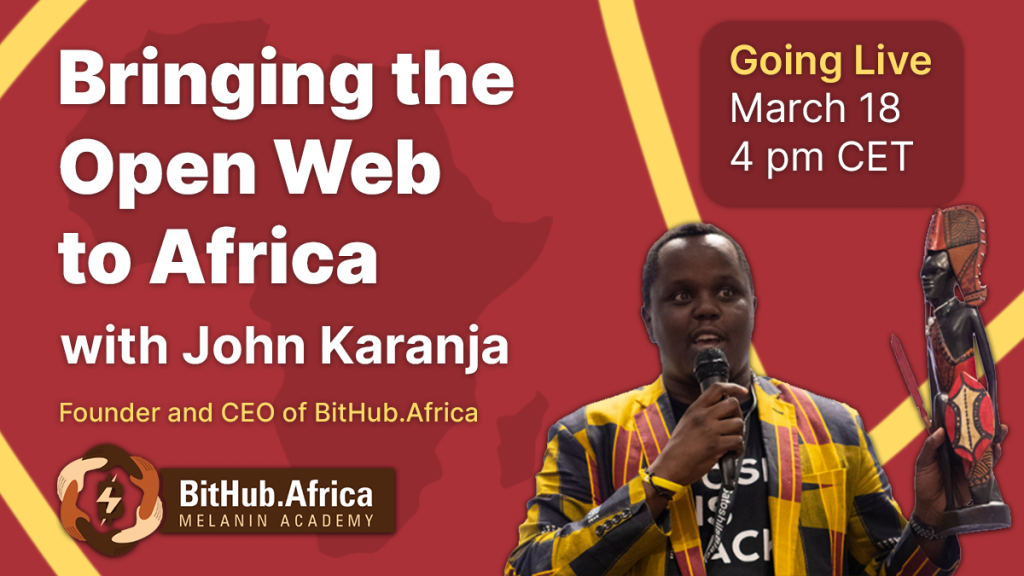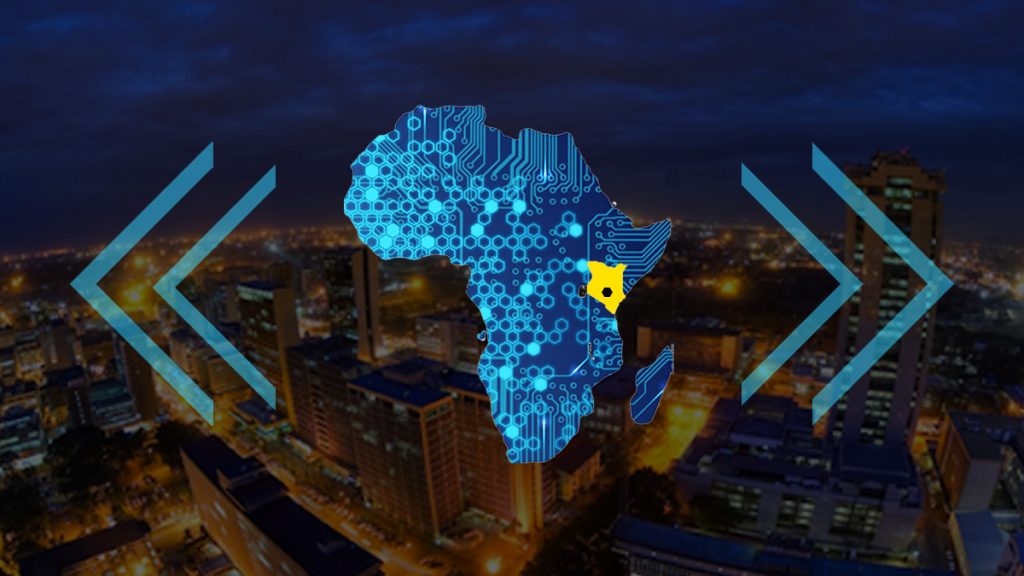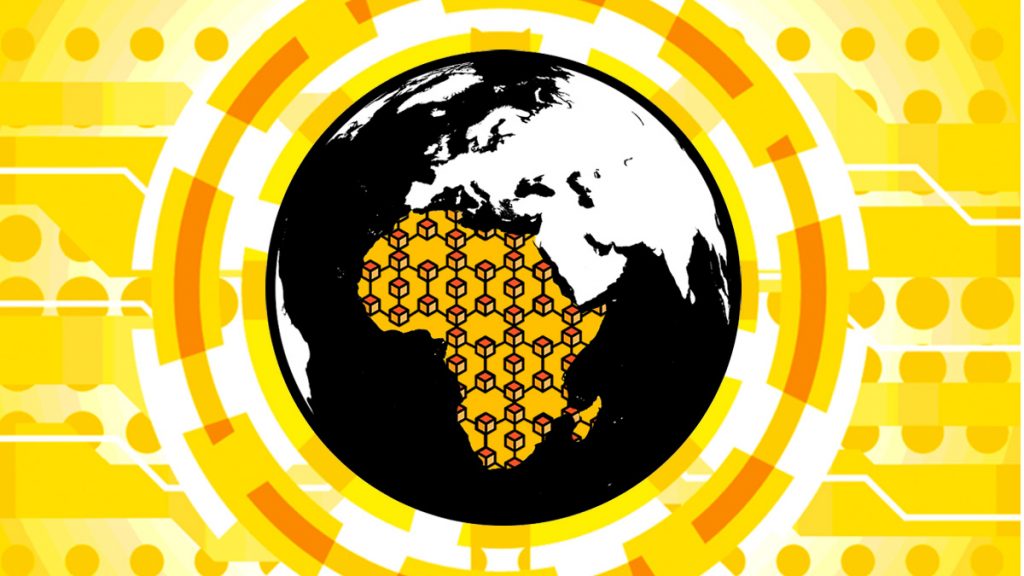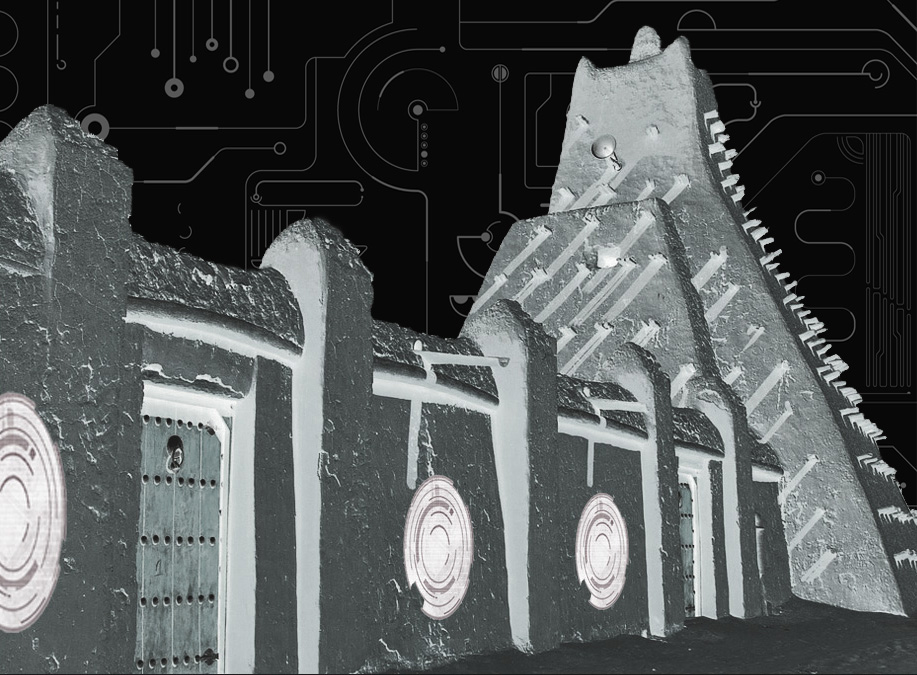The Open Web and Africa with John Karanja: A Recap


The 4NTs research team recently began a series of events dedicated to the future of the Open-Web and crypto. The first live stream featured John Karanja, founder of BitHub Africa and Whive Protocol, an award-winning protocol for innovation in the youth and gender sector. John has been involved in the African crypto space for the past seven years. His work focuses on tackling concrete issues such as energy access, dissemination of blockchain solutions and professional skill-building.
During an hour-long talk, John has given an insightful account of the evolution of Defi and crypto in Africa as well as a clear picture of the opportunities that the continent has to offer.
Africa: The Silicon Valley of the Future?

There is a growing awareness among investors and entrepreneurs that Africa presents a huge potential for becoming the crypto hub of the future. Human capital, resources, coupled with the desire for economic development and lack of financial structures are some of the ingredients that make the African continent particularly suited for a swift adoption of DLT solutions. African people are confronted with a lack of basic infrastructures and have a huge need for new solutions able to provide financial inclusion, access to opportunities and education, electricity and more. It is no surprise then that Bitcoin’s adoption is rising across the continent and that solutions like M-Pesa saw a rapid acceptance:
“What makes the African continent unique is that there is a huge need. We have people living in rural areas, they leave their mothers and grandmothers behind and their cousins behind and they come to the cities to look for work. And the people back home in their villages need access to money because they are not financially included, so what MPesa did was allowing people for the first time to send money digitally through a network. I remember I used to send money to the village I put money in an envelope, gave it to my cousin, and then my cousin removed a few notes and gave the money to my grandmother. We had something called cousin tax. Now with MPesa, that problem was solved you could send money directly. The problem with MPesa is that is not really scalable beyond the Kenyan border, yet at the same time we have this problem in other parts of Africa that are sort of lagging behind, so, this is where we see bitcoin and cryptocurrencies picking up slack of what physical money cannot do” – John Karanja
The African continent has a population of 1.2 billion people, 60% of it being below 25 years of age and in dire need to access things that other people around the world already have access to. This is a huge market to tap into:
“If you ask me what’s going to happen in the next 5 years, is we are entering a place where industries worth billions of dollars will be entering Africa and reach the lives of African people, making them wealthier and a seat on the table and trade with their fellow counterparts in Europe, in China, in the US, and the rest of the world. We have a lot to offer we have a rich and vast culture that has not been tapped into, in terms of innovation that can come from that […] there are huge market opportunities here but we need people to begin to realise the need to invest in education and we need partners to come in and create value that we can all share instead of the old extractive model in which Africa is just seen as a place where you get resources and then you leave” – John Karanja
For a long time Africa has been at the outskirts of technological development, however, the African population is showing to be much more receptive to the potential of crypto and is growing more eager by the day to further experiment with it to satisfy its necessities and fill their infrastructural gaps. These trends made entrepreneurs of the calibre of Charles Hoskinson identify Africa as the most promising economic environment in the next ten years (Charles Hoskinson, 2021). And it is precisely in these early days that investors and interpreters should not hesitate to jump into a venture that will give them access to a market worth trillions.
Uniting the African Continent Through the Open Web

To take advantage of Africa’s full market potential, Africans need to pull countries together and figure out solutions to boost cooperation. Cryptocurrencies are already allowing for an increase in international trading, however, more solutions need to be built to address other impairments to collaboration:
“One huge challenge we have here is the language barrier [..]. A lot of the problems we have here are the same in Katanga in Congo, Mali, which is access to resources that these countries have in abundance. We now need to create open communities using the Open Web where we have people that can translate content and share this content with each other” – John Karanja
The development of the Open Web will be critical to facilitate the exchange of information and cooperation. For that, scalable and user-friendly applications need to be created to stir engagement:
“The barrier remains a problem at the user interface or the user experience level. When we talk about payments and transactions you now have global monetary networks like bitcoin, you now have platforms that allow global CPU mining, we have protocols where people can build web solutions like for example the NEAR Protocol. These protocols have a common language which is digital. The digital problem has been solved […] so now we need to build applications where I can be able to translate what somebody is saying in a certain language to another language layered on top of blockchain technology. And I think when people begin to see those technologies including governments they will begin to appreciate the power of blockchain as one of the technologies that can unite the African continent and connect it intercontinentally. For me, it’s just a user experience issue where you create interoperability using applications”. – John Karanja
The necessary structures and tools to facilitate interactions and cooperation still need to be put in place. In this regard, there are plenty of opportunities for developers to unleash their creativity to build something useful and accessible.
Education and Cooperation are Key to the Open Web’s Success in Africa

The Open Web is still in its early days, and for it to succeed people will need to understand what it is and the opportunities that it offers:
“For the Open Web to succeed we do not only need innovation, but we also need education, training, and investment in youth potential. Africa is a very young continent, 60% of the people are under the age of 25 so that’s a huge resource we need to tap into to see these technologies get adopted”
– John Karanja
Investment in educational programs and training will be essential to the fast adoption of DLT and economic growth. To contribute to that John has created Melanin Academy, a project aiming to train 2000 engineers in the next 4 years. More educational programs and training have been launched in the past years but more investment is definitely needed to speed up change.
Having been involved in the African crypto scene since the very early days, John has witnessed its rapid evolution and also shortcomings:
“Today because of our effort the community is so huge that we now have what we call silos, we have people who are exclusive on one platform, some are exclusive on Bitcoin, others on Ethereum etc…What we need to do now is to interconnect these communities because we are not fighting each other we are trying to solve these huge problems which are access to opportunities, access to resources using blockchain technology. Now that we have grown we need to identify real problems and then collaborate because collaboration is key. We do not want to have a situation where different groups are trying to do the same thing while we could work through synergy to become more cost-efficient and successful”
– John Karanja
The advancement of crypto has given rise to different entrenched cultures that are at times more focused on surpassing each other than in keeping building meaningful projects for the community. Collaboration and exchanges among different platforms, however, is what is going to determine their value and success in the long haul.




